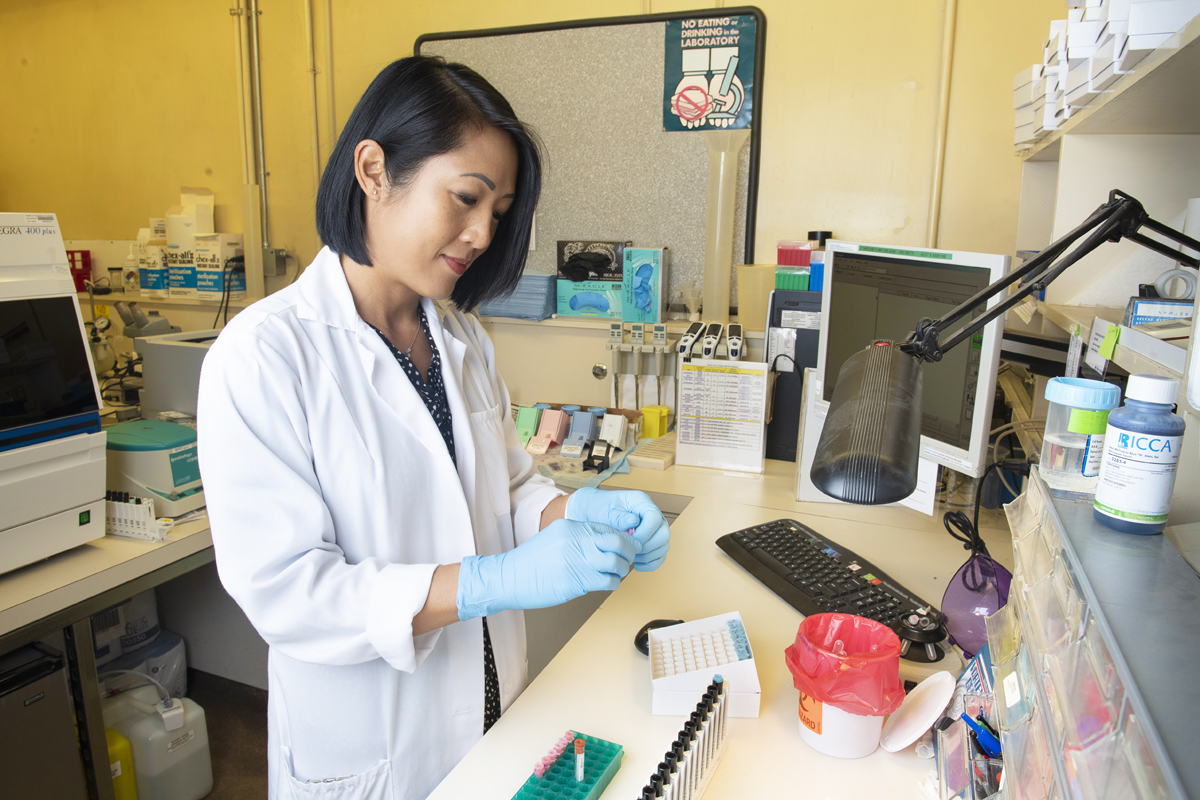Services
All services can be adapted for clinical veterinary patient care, health surveillance, phenotyping or other research needs.
Anatomic pathology – Necropsy, tissue collection, gross and histopathologic evaluation, semi-quantitative data generation (lesion scoring) and photomicroscopy services are available. We specialize in laboratory rodents but have extensive experience with dog, cat, avian, reptile, fish, amphibian and small livestock pathology.
Clinical pathology - Includes hematology and serum biochemistry analysis designed specifically for small sample volumes (40 - 50 ml).
Microbiology - Aerobic microbial culture, including samples from aquatic animals, is offered for clinical patient care, health surveillance (sentinel testing), environmental monitoring (swab, rodac plate, and water testing) and research.
Molecular diagnostics – Comprehensive quantitative PCR and RT-PCR assays for viral, bacterial and metazoan pathogens of rodent, ruminant, and aquatic animals. Assays can be developed as novel pathogens are discovered (Mouse kidney parvovirus) or outbreaks occur.
Parasitology - Direct examination, tape tests, and fecal flotation can be performed for clinical patient care, health surveillance or research. Our staff has specific expertise in the identification of parasites from laboratory rodent, ruminant, and aquatic species.
Serology - Immunoreactivity to viral or bacterial agents is screened by ELISA or IFA methods or by using Luminex bead technology. Our assays are designed for laboratory mouse, rat, hamster, guinea pig, rabbit, and vole (Microtus ochrogaster) samples. Contact us to ask about testing other species.
Quality Assurance Program
- Includes policies, SOPs, formal safety documentation, and controlled forms with change control system in place
Health Surveillance services
- Specializing in laboratory rodents, zebrafish, and Xenopus sp.
- Define the colony microbiological status and screen for infectious disease agents
- Design health surveillance programs or outbreak response algorithms
- Provide consultation on test interpretation and reporting
Research/Consultation services
- Develop assays or protocols or study design
- Provide technical training, data interpretation or manuscript figures

